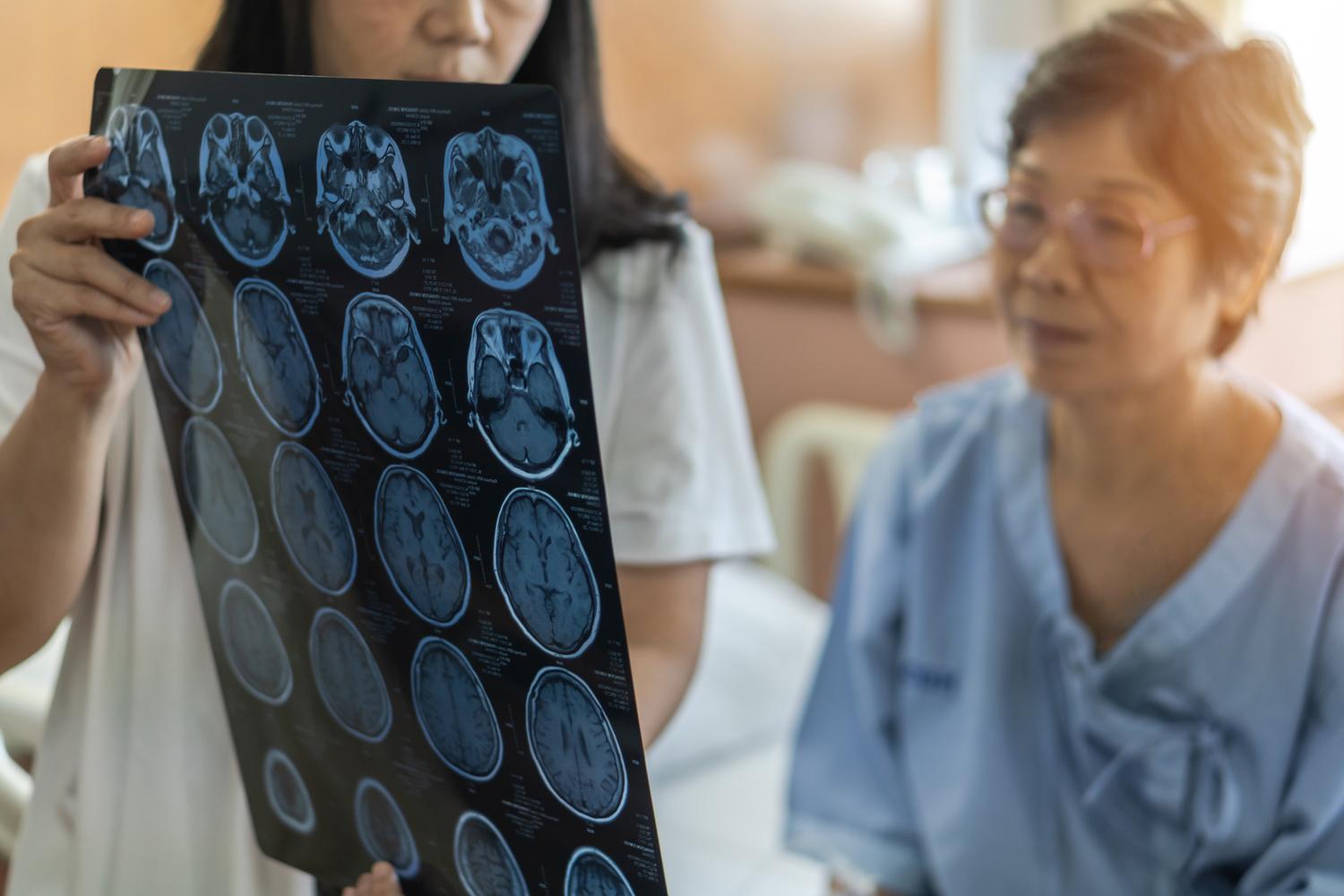IBS: Common Symptoms, Causes, and Treatment Options
A complete guide to irritable bowel syndrome (IBS)
Irritable bowel syndrome (IBS) is a common condition that affects 10-15% of Americans. The symptoms of IBS are usually pretty mild. But, irritable bowel syndrome is a chronic condition that needs long-term management.
But what is IBS? And what causes it? This article will provide a comprehensive understanding of this common but complex condition.
Types of IBS
There are three types of IBS: IBS-C (constipation-predominant), IBS-D (diarrhea-predominant), and IBS-M (mixed).
IBS-C is characterized by hard stools that pass through the intestines with difficulty. This often occurs less than three times per week. People who have this type of IBS may also experience bloating and abdominal discomfort.
IBS-D is marked by frequent loose stools that come on quickly and urgently. People who have this type of IBS may feel a need to use the bathroom after eating certain foods or drinking certain beverages.
IBS-M is a combination of both constipation and diarrhea that usually changes over time. People who have this type of IBS may also experience abdominal pain or discomfort along with their bowel movements.
Irritable bowel syndrome vs. Inflammatory bowel disease
Irritable bowel syndrome is often confused with inflammatory bowel disease (IBD). While these two conditions share similar symptoms, they are different.
Irritable bowel syndrome describes a set of symptoms. The symptoms of IBS are usually present for a long time and require ongoing management. Inflammatory bowel disease is a collection of digestive diseases affecting the gastrointestinal (GI) tract. Ulcerative colitis and Crohn’s disease are the two main types of IBD.
Put simply, IBS is a group of symptoms. IBD is a group of diseases of the digestive system.
Common causes of IBS
There is no singular or common cause of IBS. However, several factors appear to play a role in the triggering of IBS symptoms.
These include:
Muscle Contractions: A wall of muscles lines your gastrointestinal tract. These muscles contract as they move food through the digestive tract. If these muscles have a problem contracting, they can cause symptoms of IBS. Weak or short muscle contractions can lead to constipation or hard, dry stools.
Nervous system dysfunction: Miscommunication between the nervous system and the gut can cause digestive problems. Sensitive nerves in the digestive tract can also cause symptoms of IBS.
Food: Certain foods or beverages have been linked to a flare-up of IBS symptoms. Dairy, citrus fruits and beverages (like orange juice), beans, cabbage, and carbonated beverages have all been associated with uncomfortable IBS symptoms. Individuals who have Celiac disease may experience IBS symptoms when they eat gluten or wheat.
Stress: Stress is a common risk factor for the development of IBS. People who experience stressful events, especially at an early age, are more likely to develop IBS. Additionally, periods of heightened stress levels can cause flare-ups.
This is not a complete list of causes, as the exact causes of some IBS cases are unknown.
Risk factors for developing IBS include:
Age: IBS is found more frequently in people under the age of 50.
Gender: Women are almost twice as likely to develop IBS as men.
Genetics: IBS may be passed through family history. If you have an immediate family member with IBS, you are at greater risk of getting the IBS yourself.
Mental health: A history of anxiety, stress, or depression has been linked to the development of IBS. In addition, a history of physical or emotional trauma might also be a risk factor for this condition.
Common symptoms of IBS
The symptoms of IBS vary in severity from person to person. However, these symptoms are generally chronic and require long-term care.
Common symptoms of IBS include:
- Abdominal pain or cramping
- Bloating
- Excessive gas (flatulence)
- Diarrhea
- Constipation
- Mucus in the stool
- Fatigue
- Nausea and vomiting
- Loss of appetite
In most cases, IBS symptoms occur during “flare-ups”, or episodes in which the effects listed above are particularly prevalent.
When to see a doctor for IBS
The symptoms of irritable bowel syndrome are often mild.
Monitor changes in your bowel habits (how often you are pooping) or the appearance of your bowel movements. Talk to a healthcare provider if these changes continue for three to four months. These are common signs of IBS.
Seek medical treatment as soon as possible if you notice the signs of severe IBS.
Severe symptoms include:
- Frequent diarrhea
- Diarrhea at night
- Severe constipation
- Rectal bleeding (blood in the stool)
- Weight loss
- Fatigue, weakness, or dizziness (signs of anemia)
- Abdominal pain or cramping
- Mucus in your stool
Severe symptoms require medical attention and treatment.
IBS requires management, and letting the condition go undiagnosed can lead to health problems. Talk to a healthcare provider if you experience mild symptoms that last for several months. Seek medical attention right away if symptoms start to become severe.
Diagnosing IBS
IBS is usually diagnosed by a primary care provider. During your appointment, your provider will ask you about the symptoms you are experiencing, your health, and your family history.
Signs of other gastrointestinal disorders include:
- GI symptoms that start after age 50
- Weight loss
- Rectal bleeding
- Fever
- Nausea
- Vomiting
- Stomach pain
- Anemia
To determine the cause of your symptoms, your provider may ask you to undergo additional testing.
Diagnostic testing may involve:
Colonoscopy: During a colonoscopy, your provider examines the colon with a small tube with a lens in it. Providers use colonoscopies to test for other gastrointestinal disorders or colon cancer.
Endoscopy: Providers use endoscopy procedures to check for bacterial overgrowth in the small intestine. During this procedure, a long flexible tube is inserted into your upper digestive tract through your throat. Gastroenterologists also use endoscopy to look for damage or inflammation in the small intestine. These are among the surest signs of Celiac disease (gluten intolerance).
Stool tests: Your provider may collect a sample of your stool to check for bacteria, parasites, or bile acid.
Blood tests: While blood tests won't determine if you have IBS, they can help providers rule out other conditions. A blood test may be used to check for Celiac disease.
Lactose intolerance tests: To test for lactose intolerance, providers may ask you to avoid dairy products for a few days or weeks to see if your symptoms improve.
IBS Treatment Options
Diet and Lifestyle Changes
Treatment for IBS will vary depending on the severity of your symptoms. Mild IBS can be treated with dietary adjustments and lifestyle changes. These can help improve a patient’s quality of life.
Lifestyle changes: A healthy, low-stress lifestyle has been shown to reduce symptoms associated with IBS.
These changes include:
- Avoiding meals that make symptoms worse
- Consuming foods that are high in fiber
- Drinking plenty of fluids
- Exercising regularly
- Getting enough sleep
- Practicing stress management techniques
Dietary adjustments: In addition to the practices listed above, your provider may recommend that you avoid certain foods or eliminate certain foods entirely.
These adjustments include:
Foods that cause gas: If you have bloating or gas, you may want to avoid carbonated and alcoholic beverages and some foods that cause gas.
Gluten: Even if you don't have celiac disease, some patients with IBS experience improvement in diarrhea symptoms when they quit consuming gluten (wheat, barley, and rye).
FODMAPS: FODMAPS are a group of carbohydrates (like fructose and polyols) that are found in certain fruits, vegetables, grains, and dairy products. A low-FODMAP diet has been shown to help some people relieve symptoms of IBS.
You may be referred to a dietician to help you with this diet change.
Medication for IBS
If you experience moderate to severe IBS symptoms, you may be prescribed medication to adequately reduce symptoms.
There are a handful of medications used specifically to treat IBS.
These include:
- Rifaximin (generic Xifaxan)
: Rifaximin may be prescribed to treat bacterial overgrowth in the intestines.
- Linaclotide (Linzess)
: Linaclotide adds fluid to your stool, making it easier to have a bowel movement.
- Lubiprostone (generic Amitiza)
: Lubiprostone may be prescribed to treat IBS in women with constipation. This drug adds fluid to your stool. Lubiprostone is usually only prescribed when other treatment options have failed.
Other medicines used to treat IBS include:
Anti-diarrhea medication: Loperamide, an over-the-counter medicine, can help reduce diarrhea.
Anticholinergic medications: Painful bowel spasms can be relieved with medications like dicyclomine.
Pain medications: Pregabalin and gabapentin are two drugs that can help with pain and bloating caused by IBS.
Fiber supplements: Constipation can be controlled by taking a fiber supplement with water.
Laxatives: If fiber supplements don’t control constipation, your doctor may prescribe an over-the-counter laxative to help bowel movements.
Tricyclic antidepressants: These medications help control intestinal function. This can soothe painful symptoms caused by IBS.
Selective serotonin reuptake inhibitors (SSRIs): SSRIs are a type of antidepressant that may be prescribed to treat depression, pain, and constipation linked to IBS.
If symptoms don't improve, talk to your healthcare provider. They may adjust your treatment or order follow-up testing to treat your condition.
How Sesame can help
IBS is not life-threatening and is generally manageable with care. If you are experiencing the warning signs of IBS, talk to a healthcare provider on Sesame right away to start treatment. Sesame offers convenient and affordable online IBS appointments so you can get the care you need right away. Providers on Sesame can prescribe medication to be picked up at your local pharmacy on the same day. Prescriptions are at the discretion of your healthcare provider.








